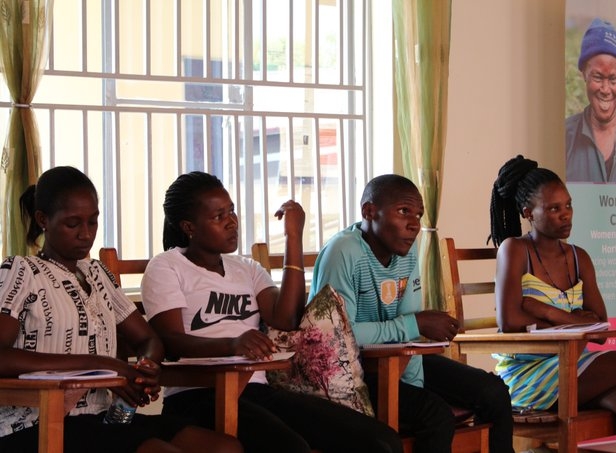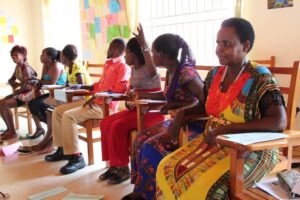
The first thing that comes to mind when most people think about flowers is love, beauty, birthdays, weddings or similar celebrations. Nothing about the women who suffer insurmountable injustices to bring these flowers to our tables. Unquestionably, flowers make beautiful additions to our living spaces but what does it mean when the woman who picked these flowers does not receive her money’s worth for the job done? At the end of the literal day, the USD20 for a bouquet of flowers trickles down to her as USD24 at the end of the literal month yet she continues toiling away, clipping thorny rose bushes and remaining extremely vulnerable to abuse.
The Women’s Leadership Strategy in the Horticulture Sector in Eastern Africa was commissioned by Hivos, as part of the wider Women@Work Campaign that seeks to promote decent work for women who earn their living in the horticulture sector. Drawing upon her expertise and experience AMwA proposed interventions for African women aimed at equipping women in the sector with leadership skills to challenge patriarchal beliefs, norms and structures that impinge on their aspirations for growth. Survey findings conducted built a valid case for a pragmatic women leadership strategy which when implemented should be able to uplift the subservient position of women in the horticulture sector by addressing their rights, improve efficiency and contribute to their economic development among others.
Vital to the women leadership strategy is the importance of restoring women’s dignity as equal citizens deserving of a living wage, equal pay for equal work done and building their capacity as leaders. The strategy is premised on the belief that by enhancing their leadership skills and opportunities; supporting them to overcome barriers to leadership, confronting limiting attitudes towards women in the workplace, anchor gender diversity strategies in a compelling business case, and empowering farms to prioritize gender diversity, women will build their competence and seek leadership positions.
It is with this aspiration that AMwA conducted a five day residential feminist and transformational leadership training to advance women’s leadership and participation in decision-making processes in the horticultural sector in Uganda. The training which took place from 7th – 12th April 2019 attracted 29 participants, five of whom were men, from three flower farms in Uganda sought to equip participants with knowledge and skills in leadership and personal development to excel in the horticultural sector; challenge and inspire women workers to assume leadership positions and nurture feminist leadership within the sector; and also increase the workers’ awareness and appreciation of the legal and policy frameworks to advocate for better policies and challenge discriminatory social norms and practices against women.

Through the different modules of personal development, feminist theory, understanding labour rights, gender and globalization, financial literacy, social movement building and taking action specifically tailored for the flower farm workers, participants shared the defining moments of their lives highlighting patterns of teenage pregnancies, absentee husbands and fathers and struggling to make ends meet and allowed themselves to examine their gender and selfhood. They delved into power and what feminist leadership is, concluding that what they experienced on their farms back home was contrary to what they had learned. At the end of the five days, the trainees developed personal growth plans and collective actions to enable them achieve the transformation they seek.

During the training, participants alluded to their issues of concern chief of which were low and unequal pay for equal work done, gendered roles at the farms, limited participation of women at managerial and higher positions on the farms and the absence of effective social protection mechanisms and gender policies among others. There were continuous complaints of backache by the women for which they demanded care centers in flower farms to prevent health hazards. Nonetheless, they remained resolute and driven well aware that they deserve better than what they are being handed.

